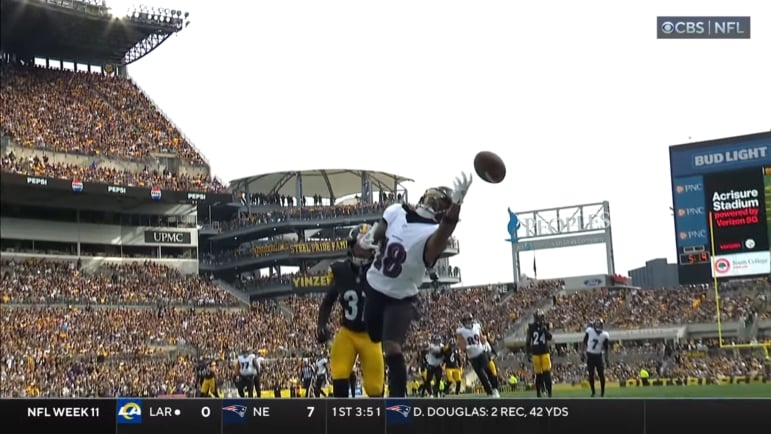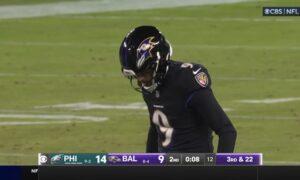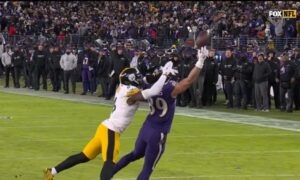The Baltimore Ravens thought they could do with Diontae Johnson what the Carolina Panthers couldn’t, and they were quite wrong. To hear them discuss it yesterday, however, they knew things might play out as they did. Even though they technically own his rights, they have no intention of ever playing him again.
After releasing him, the Ravens later claimed Johnson off waivers from the Houston Texans. Because they claimed him during the postseason, they won’t actually earn his rights until after the postseason. They knew this, of course, but were only interested in his potential compensatory benefit. When they released him previously, they said what they actually felt about him as a member of the Ravens. But, GM Eric DeCosta insists, they knew the risks.
“We looked at [the Diontae Johnson trade] as a chance for us to strengthen a position group, potentially, [with] a guy we’ve played against a lot”, DeCosta said, via the Ravens’ website. “We did our homework. We understood the risks and the rewards. Didn’t look at it as cost prohibitive. We knew that it wasn’t 100% going to be a slam dunk”.
The Diontae Johnson trade ended up being whatever the opposite is for the Ravens. They never played him much, and when they did, he failed to make plays. And then he decided he didn’t want to play anymore, so they suspended him, eventually releasing him.
“It didn’t work out. We always try to mitigate our risks”, DeCosta said. The Ravens sent the Panthers a 2025 fifth-round pick in exchange for Johnson and a 2025 sixth-round pick. And Baltimore will have a high fifth rounder, Carolina a low sixth rounder. In that sense, DeCosta is very right in that they didn’t lose much—about half a round or so.
“One of the jobs of a general manager is to mitigate your risk and look at the downside and the upside and see how it works out”, he said. “In that particular situation, I really didn’t see a lot of downside. I think we understood what the downside might be – that [Diontae Johnson] would be unhappy with his role, potentially”.
While DeCosta insists the Ravens did their homework, it doesn’t seem as though they talked to Johnson about his role. They just figured he would either accept whatever they told him to do or not. As long as they were willing to live with the consequences, it ultimately doesn’t matter much.
The whole situation did lead some to question the Ravens as an organization. Why would they make a trade, even if the risk were minimal, that was so fraught with potential headaches? There’s a reason the Steelers traded Diontae Johnson in the first place, and it had nothing to do with his football ability.
If a team is trading a player it already traded for earlier in the year, that’s a big red flag. If that team is trading him at a substantial loss, that’s another. The Ravens had all the warning signs that trading for Johnson wouldn’t work out. It made them look bad, a tiny bit, in one small area. They had to address a question about it at the end of the season. But now they’ll move on and it will be forgotten. And maybe they’ll even look smart if he helps land them a compensatory pick in 2026.








